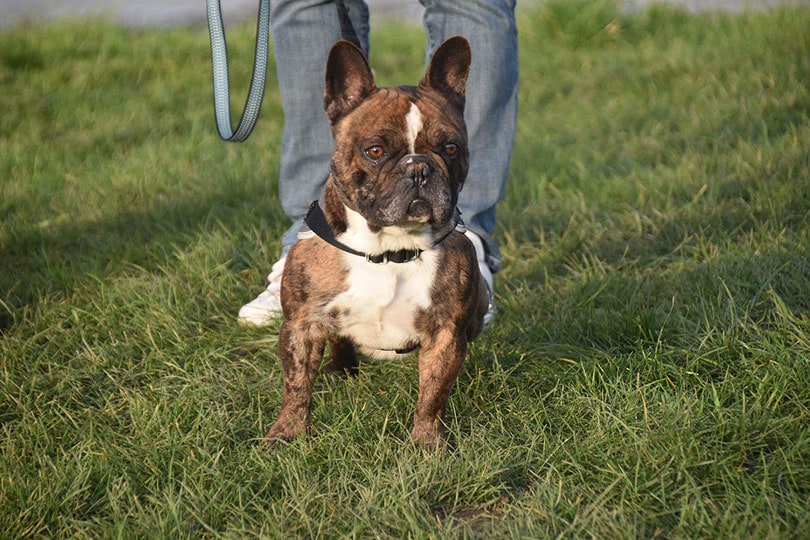Male vs Female Corgi: Key Differences (With Pictures)
By Kit Copson
Updated on
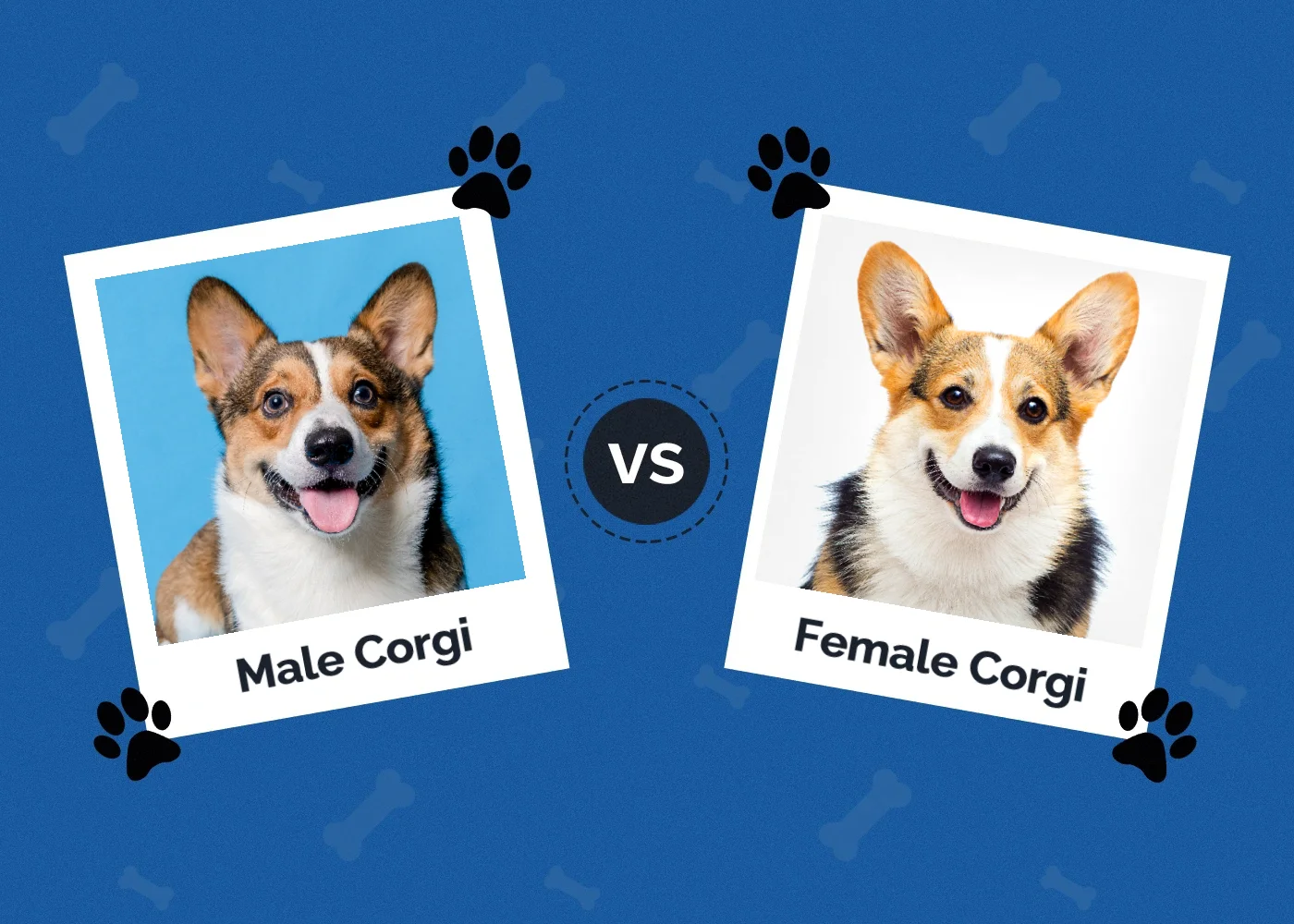
Click to Skip Ahead
Corgis are little dogs with huge hearts, a friendly “smile” permanently etched into their features, and a fluffy, wiggly butt—how could we not love them? If you’re thinking about sharing your life with a Corgi, one of your questions might be “Is there a difference between male and female Corgis?”. This is not easy to answer because every Corgi is unique.
A Corgi’s temperament and personality come down to their socialization and their character—just as there are so many diverse personality traits in humans, dogs are no exception. Anecdotal evidence from Corgi owners points to certain differences in males and females, but these are just generalizations.
In this post, we’ll explore what Corgi owners have to say about the differences between male and female Corgis as well as any biological differences that may be present.
Visual Differences
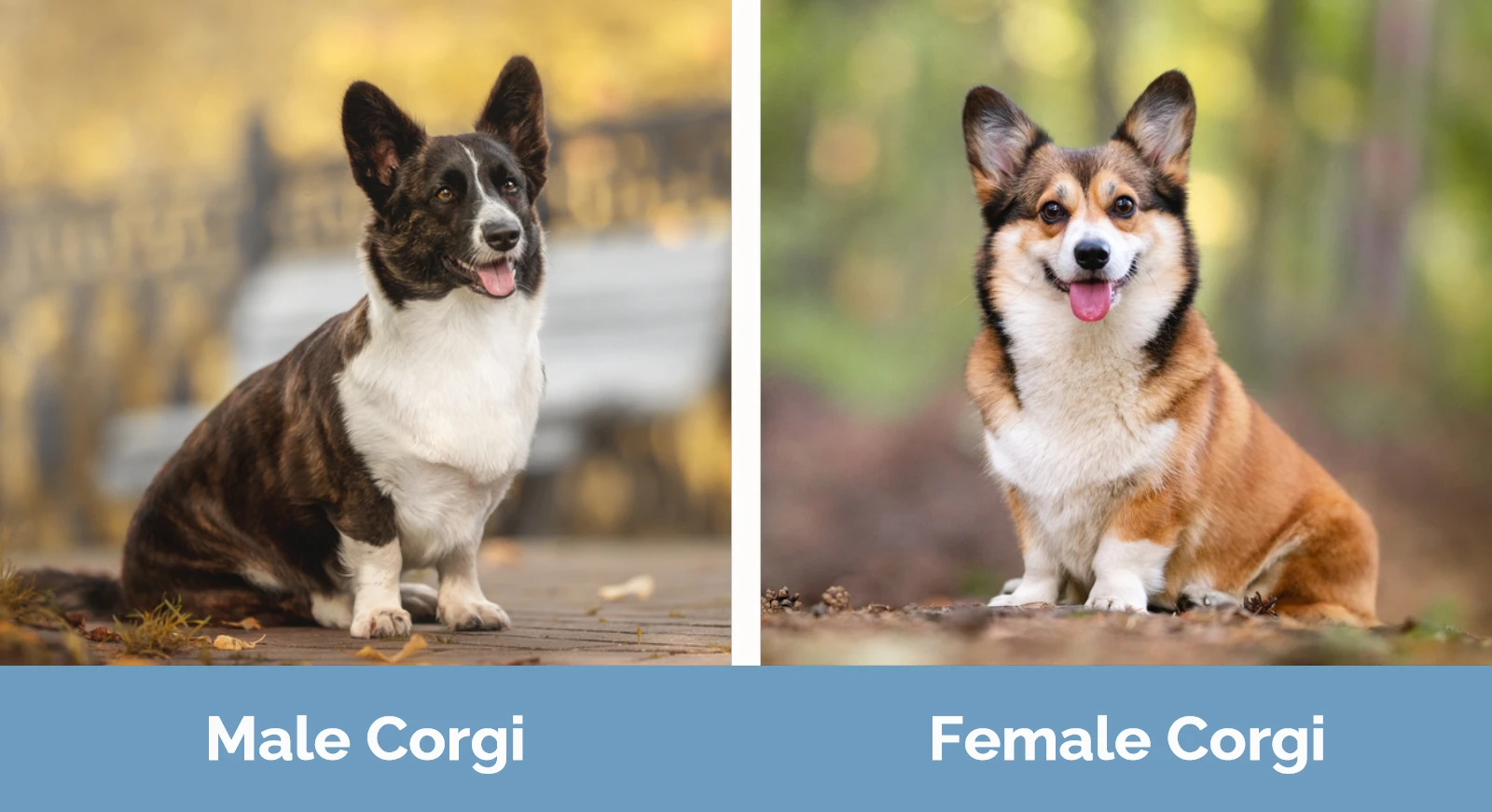
At a Glance
- Average height (adult): 10–12 inches
- Average weight (adult): Up to 30 pounds
- Average height (adult): 10–12 inches
- Average weight (adult): Up to 28 pounds
Corgi Breed 101
Pembroke Welsh Corgis—often shortened to simply “Corgis”—are small to medium-sized dogs in the herding group. As their name suggests, they originated in Wales and were bred to herd cattle and other livestock on farms.
The Corgi’s ancestors could have been around as early as the 10th century or even before, and it’s uncertain from which breed they descend. It’s possible that they share lineage with Pomeranians and Schipperkes, or they could have originated from Viking dogs Swedish Vallhunds.
Despite their stocky appearance, Corgis are excellent herding dogs—smart, quick, obedient, and nimble. They also make wonderful companion dogs and family dogs thanks to their affectionate, family-oriented, and friendly dispositions.
Though Pembroke Welsh Corgis are similar in appearance to the Cardigan Welsh Corgi, they’re not the same breed. Cardigan Welsh Corgis are a tad bigger and heavier than Pembrokes with pointier ears. They also have different markings.
There are four Pembroke Welsh Corgi colors accepted by the AKC—black and tan, fawn, red, and sable. Only white markings are considered standard. By contrast, there are 11 Cardigan Welsh Corgi colors—five of which are standard—and seven markings.
Male Corgi Overview

Personality / Character
In general, Corgis are said to be affectionate and intelligent dogs. According to Corgi owners, the male Corgi’s temperament ranges from docile and chilled-out to bold and independent. Some described their male Corgis as super cuddly and playful and said that they revel in human attention. On the other hand, some male Corgis were described as more “aloof” in temperament.
This goes to show that a dog’s gender does not guarantee the temperament they will have! As explained by PetMD, another generalization is that male dogs tend to mature at a slower rate than females, so they might be more “puppy-like” for longer.
Training
Male Corgis are very responsive to training—they’re smart, eager to please, and full of energy, so there’s no reason they wouldn’t be able to learn basic house training and how to behave on a leash. Male dogs are known for maturing more slowly than females, though, so you might need to spend a little extra time training your male Corgi.
Health & Care
Corgis have a double coat that sheds heavily during the shedding season (spring and fall). For this reason, you’ll need to equip yourself with a de-shedding tool and brush to tackle the fallout. The AKC recommends using a slicker brush and comb on a daily basis to keep the coat in tip-top condition.
Your Corgis ears should also be checked weekly to make sure they’re clean. Regular nail trimming and teeth brushing are also important. Corgis are a generally healthy breed, but they can be prone to certain conditions, including:
- Elbow and hip dysplasia
- Patent ductus arteriosis
- Von Willebrand’s Disease
- Cataracts
- Degenerative Myelopathy
Unneutered male Corgis are also more at risk of reproductive disorders, including testicular cancer and prostate disorders. Finally, Corgis are not the best at dealing with weather extremes, so avoid allowing them to spend too much time outside when it’s very hot or cold.
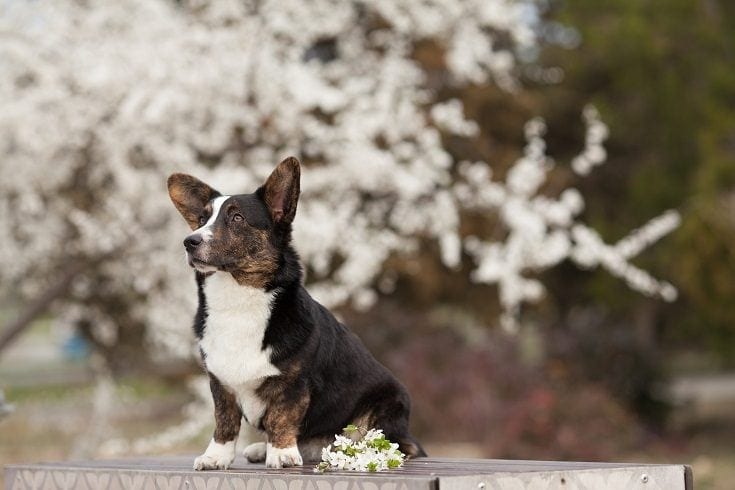
Breeding
As mentioned above, Corgis are prone to certain health conditions. If your Corgi comes from a responsible breeder, their background should have been checked for any health conditions that could have been passed down from their parents.
- Generally affectionate and friendly
- Generally good with children and other pets
- Trainable and intelligent
- Considered a generally healthy breed
- Family-oriented
- Unneutered males more prone to reproductive health conditions
- May require more time to train
Female Corgi Overview

Personality / Character
Like male Corgis, female Corgis are generally considered to be fantastic companion dogs—loving, loyal, and affectionate. According to some female Corgi owners, they’re a little more prone to stubbornness than males. They’re also known for having more of an independent streak.
This could come down in part to the female dog’s tendency to mature faster than males, which can be a bonus as it might make them easier to train. On the other hand, some Corgi owners described their females as being super affectionate—even more so than their males. Again—gender is no guarantee of character!
Training
As female dogs are known for being faster to mature in general, this may make them easier and quicker to train than males. This is not a marker of intelligence, mind you—just the speed at which the dog learns. Apart from this possibility, both male and female Corgis should respond to training well as long as it’s a firm-but-kind and consistent dog parent doing the job.
Health & Care
Like male Corgis, female Corgis are prone to the health conditions outlined above. In addition, unspayed female Corgis are more at risk of mammary cancer and pyometra, which is an infection caused by hormonal changes in the reproductive tract. According to the ASPCA, around 25% of unspayed female dogs will suffer from this condition before they turn 10 years old.
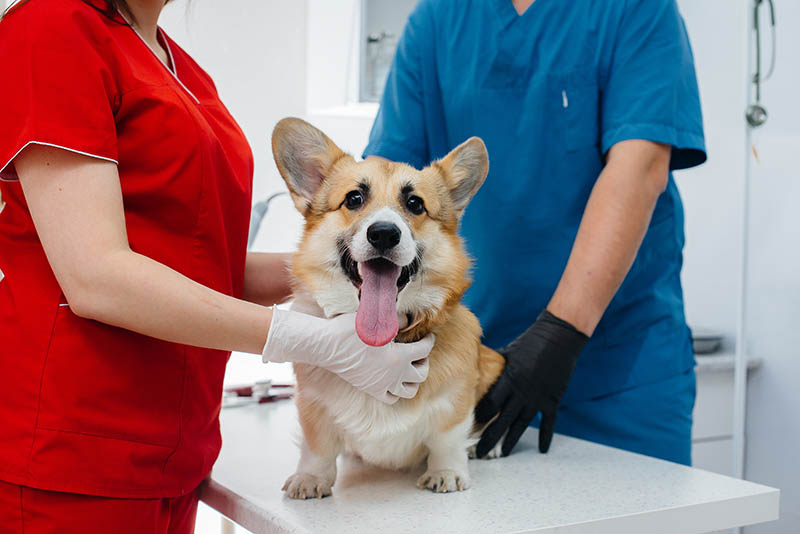
Breeding
As with male Corgis, female Corgis are prone to certain health conditions. If you do decide to purchase a Corgi from a breeder, make sure you go for a reputable one that screens for potential health issues.
- Generally affectionate and friendly
- May be quicker to train
- Generally good children and other pets
- Considered a generally healthy breed
- Fun-loving and loyal
- May be more stubborn than males
- Unspayed females prone to mammary cancer and pyometra
Can I Adopt a Corgi?
Absolutely! We always recommend adoption over buying from a breeder where possible as this means giving a dog a second chance at a loving home. It also helps to support the crucial work that rescue organizations do.
There are Corgi rescue and rehoming organizations out there, though these popular dogs are likely to get snapped up quickly. There’s usually a fee attached to adoptions, which varies depending on the dog’s age and the amount set by individual rescue organizations.
Adoption is far less expensive than buying from a breeder, though, and adoption fees typically go towards veterinary expenses like microchipping and spaying/neutering or towards helping the organization continue their work with other dogs.
Which Gender Is Right for You?
There is no way to know which gender of Corgi is right for you without actually meeting the dog. This is because gender does not dictate what kind of personality a dog has, so we recommend meeting and getting to know a little about the Corgi you have your eye on before you make your decision. This is a much better way of deciding than going on gender alone.
Featured Image Credit: Left – mullyadii, Shutterstock | Right – Happy monkey, Shutterstock





